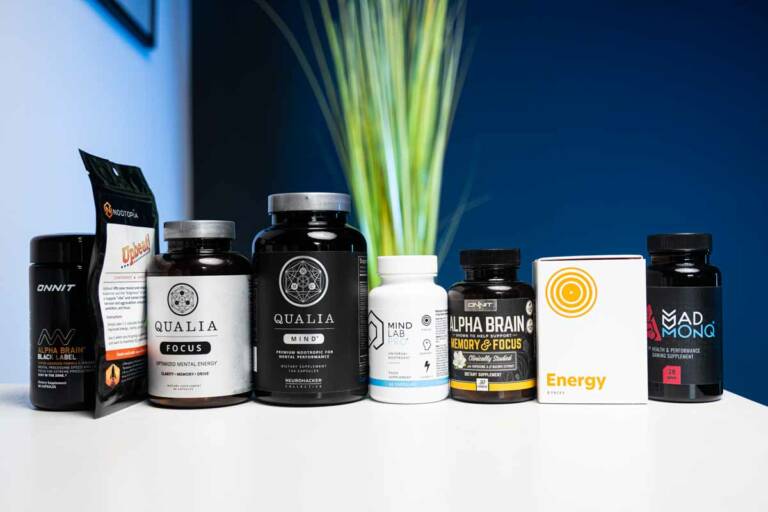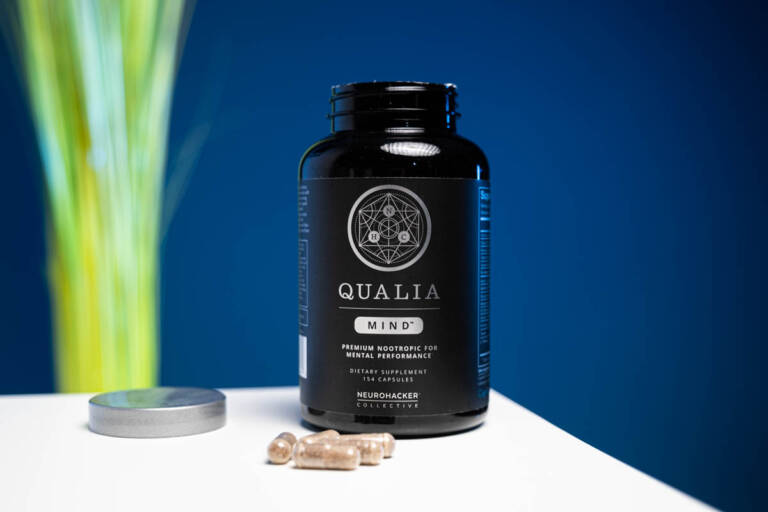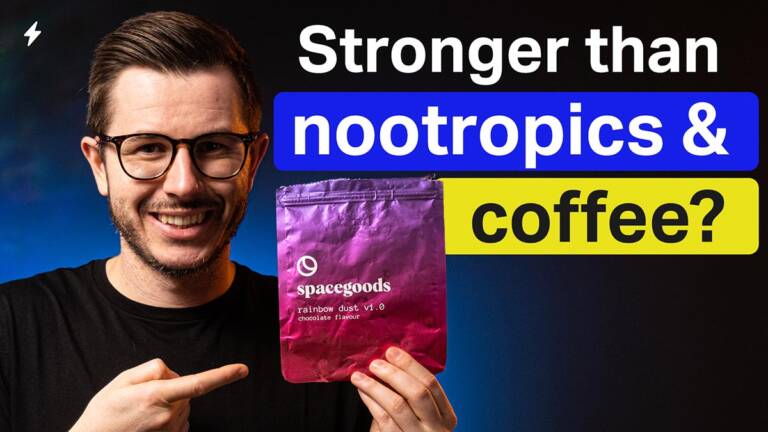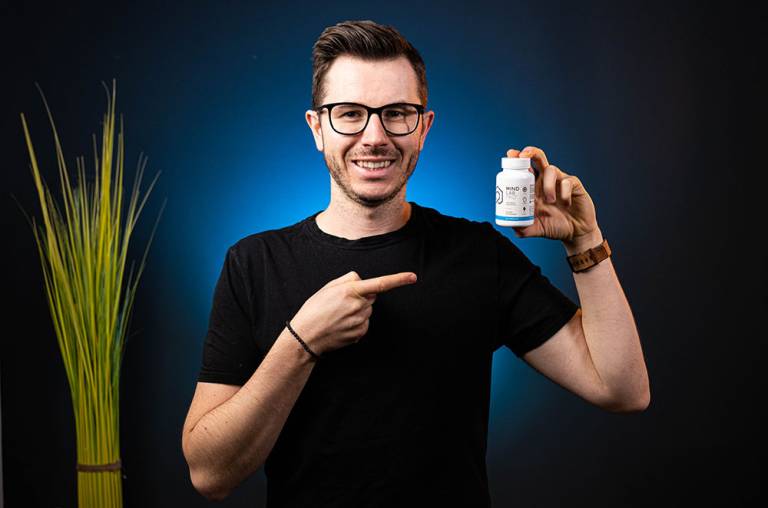For many people, the early morning cup of coffee is their instant energy boost. It gets them ready for the day ahead and becomes such a habit that it can be hard to imagine starting the day without it. But if you’re looking for a way to cut down your caffeine intake without giving up the energy jolt, then you can look into some healthy alternatives to caffeine.
How To Choose Your Caffeine Substitute?
People take their morning coffee for a number of different reasons. And while the energy boost stays universal for most, others may love different things about their coffee.
For instance, some people savor the rich flavor, while others enjoy the warmth of a soothing drink. If you are of the former category, then you may want to substitute coffee with something that offers a similar complexity and richness of flavor. Or, if you crave the warmth of a hot cup of coffee in the morning, then your coffee substitute should be able to provide you just that.
The more similar your caffeine alternatives are to the original, the more easily you will be able to replace it.
And to get you started, here are some delicious caffeine replacement options that will still give you plenty of energy, but without the caffeine.
Alternatives to Caffeine
Chicory root
If you are among that group of people who loves the rich flavor of coffee and are not willing to give that up, then chicory root coffee may be the best alternative for you.
This is because, just like coffee beans, chicory root can also be roasted, ground, and brewed into a hot beverage. While the taste is considered similar to that of coffee, some describe chicory coffee as slightly woody and nutty.
You can be brave and use it on its own or mix it with a small amount of coffee to complement the flavor if the thought of going cold turkey intimidates you. As you get more used to the flavor, start cutting down your coffee proportion until you are totally coffee-free.
Preparing chicory coffee is simple as the root can be purchased pre-ground or roasted. All you have to do is brew it like regular coffee using a coffee maker, French press, or espresso machine. To prepare, use 2 tbs. of grounds for every 6 oz. of water.
Matcha/Green tea
Another popular alternative for coffee is matcha tea. Available as a green powder, matcha is created by steaming, drying, and grinding up young tea leaves. Even though matcha does contain caffeine, as all teas do, it also contains L-theanine, which counters the jittery-associated effects of caffeine.
People who drink matcha report that the energy they get from this tea is more relaxed energy, which does not leave them with a jittery sensation.
As far as flavor goes, matcha tea is said to have a fresh, earthy flavor.
Green tea is also minimally processed and presents the advantage of containing more antioxidants, superior anti-inflammatory potential, and may be better for oral health.
Yerba Mate
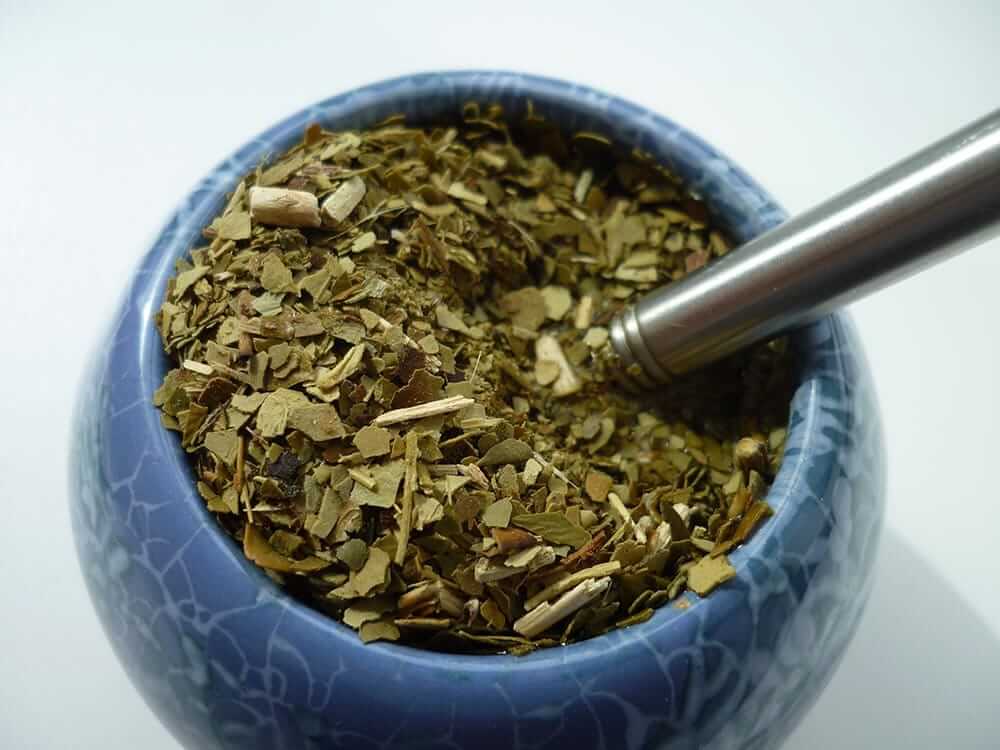
Yerba Mate is another naturally caffeinated beverage that still yields some caffeine for people who don’t want to give up their morning dose of caffeine completely.
Even though not caffeine-free, this option comes with beneficial plant compounds that act as antioxidants. Plus, you also get the benefit of several minerals and vitamins with this naturally caffeinated herbal tea.
Its theobromine content is a naturally occurring stimulant that delivers a smoother and longer-lasting energy boost without the jitters of coffee.
Taste-wise, Yerba Mate is considered broad and earthy and is brewed like any other herbal loose-leaf tea.
Although it does have caffeine content, Yerba mate has traditionally been used as a digestive aid. Alongside this, yerba has been compared to coffee in its effect on bone density.
Kombucha
Another coffee replacement option for people trying to minimize caffeine intake, kombucha uses tea for fermentation. Once again, this option contains some caffeine but to a much lesser degree than coffee and even less caffeine in every cup than a regular cup of tea.
This makes it an ideal drink for anyone looking for a gentle and mild caffeine boost but without the jitters. It is prepared by fermenting black tea with bacteria, yeast, and sugar.
Kombucha gets its trace amounts of caffeine from its black tea content. However, its energizing properties come from elsewhere. The beverage contains B vitamins, chelated iron, and probiotics, along with electrolytes and potent antioxidants.
So, what you get is an energizing drink without the crash. The fizzy nature of the drink will help you feel a little pep as you sip it early in the morning.
Simply go for the commercial varieties available.
Caffeine-free Coffee Alternatives
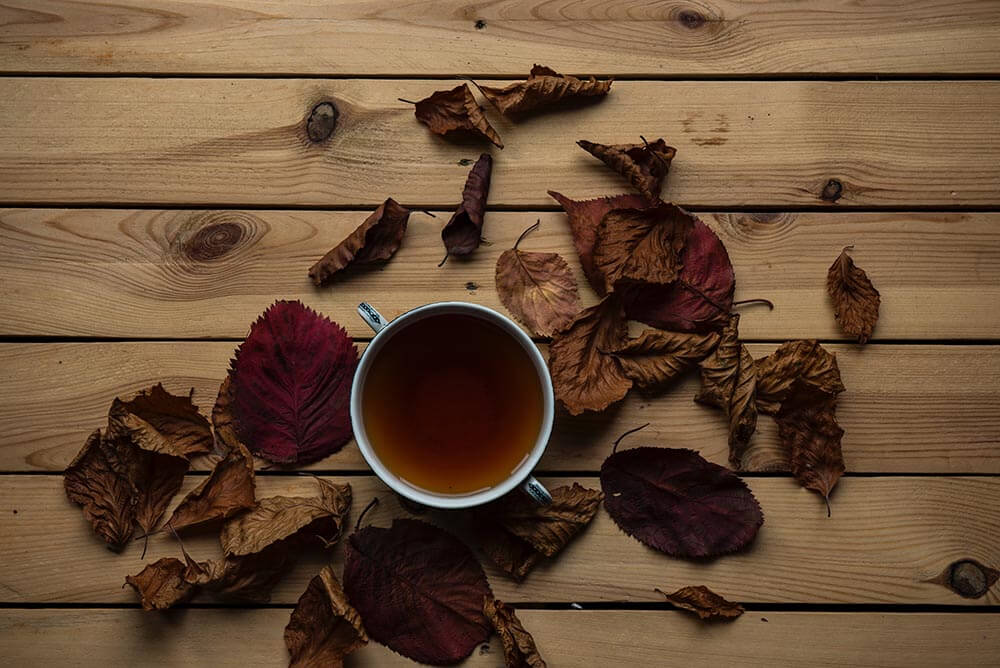
Moving on from less caffeine to caffeine-free drinks that can give you a jolt of energy in the morning, there are many healthy options to consider.
Here we share our favorite caffeine alternatives:
Golden Milk
Golden milk is also another great alternative to keep energy levels up during the day. Unlike teas, which still contain some caffeine content, golden milk makes for an utterly caffeine-free alternative to coffee.
It is prepared by using warm milk spiced with traditional Indian ingredients such as ginger, turmeric, cinnamon, and black pepper. You can also add in some honey or vanilla to improve the taste. If you feel like upping your recipe, go ahead and throw in a chopped date or two to take this beverage up a notch.
The drink gets its name from its bright yellow color and is also aptly called turmeric latte by some. If you want to add some variety to this soothing beverage, you can also prepare it using nut milk paired with freshly-juiced turmeric root.
For a quick and easy recipe, combine one cup of water with half a cup of turmeric powder and warm on low heat, adding more water if the mixture becomes too dry.
Remove from heat and stir in one-third cup of organic coconut oil or extra virgin olive oil with half a teaspoon of black pepper. Store mixture in a glass container in the fridge.
When you want to drink some, put one teaspoon of the mixture in a mug. Add a dash of warm spice like cinnamon, cardamom, or ginger with some honey. Mix with one-third cup milk of your choice such as almond, coconut, or hemp. Fill the rest of the mug with boiling water, stir and enjoy.
Rooibos tea
Although brewed as a tea, rooibos or red tea is a caffeine-free alternative that hails from the southern regions of Africa. It has been used as a caffeine-free alternative to the more traditional black and green teas.
This is an herbal tea not related to green or black tea and is created by fermenting the leaves of the red bush called Aspalathus linearis. Fermentation turns the leaves to a red-brown color.
The tea is consumed like regular black tea, by either adding milk and/or sugar or plain. You can also get rooibos iced tea, espressos, lattes, and cappuccinos.
Rooibos is described as having a sweet, delicate, and earthy flavor and contains several antioxidants giving it its health benefits. Rooibos is also low in tannins, which are naturally occurring compounds in other black and green teas.
Smoothies As Alternatives to Energy Drinks
Smoothies are an excellent way to jump-start your day by filling up on the goodness of healthy, wholesome ingredients and fruits. But we are not merely talking about whipping up some frozen or seasonal fruit but also throwing in a special ingredient or two to up the energizing factor.
Let’s share with you some other great caffeine alternatives:
Maca
Replace your regular energy drink with a maca-inspired smoothie by sprinkling some of this energy-enhancing powder on top.
Maca powder comes from the Maca plant, which is also sometimes referred to as the Peruvian ginseng. The primary edible part of the plant is its root, which can range in color significantly from white to black.
The root is dried and used in powdered form, which you can easily incorporate in your favorite smoothie. Or, if you want to an energy-filled breakfast, you can sprinkle it onto your oatmeal, favorite cereal, and even an egg-based breakfast.
Maca powder delivers an earthy and nutty texture/taste and has an impressive nutritional profile. Its efficacy as an energy booster can be gauged from the fact that it is a popular supplement among bodybuilders and athletes alike.
Carob
Carob is commonly used as a sweet and healthy alternative for chocolate. Available in powder form, carob is easy to use in favorite sweet treats like chocolate milkshakes, fudge, and smoothies.
Its energy-enhancing potential comes from its high fiber content, antioxidant capacity, and low amounts of fat and sugar. Although compared regularly to chocolate, carob does have a slight edge over its competition in the sense that it contains twice the amount of calcium as compared to cocoa.
It is also caffeine-free, so it doesn’t present any of the symptoms associated with regular caffeine intake.
Just like maca powder, you can use carob sprinkled into your favorite smoothie. If you like having a cup of hot cocoa in the morning, why not try substituting it with carob and see how you feel about that.
Energy Pills
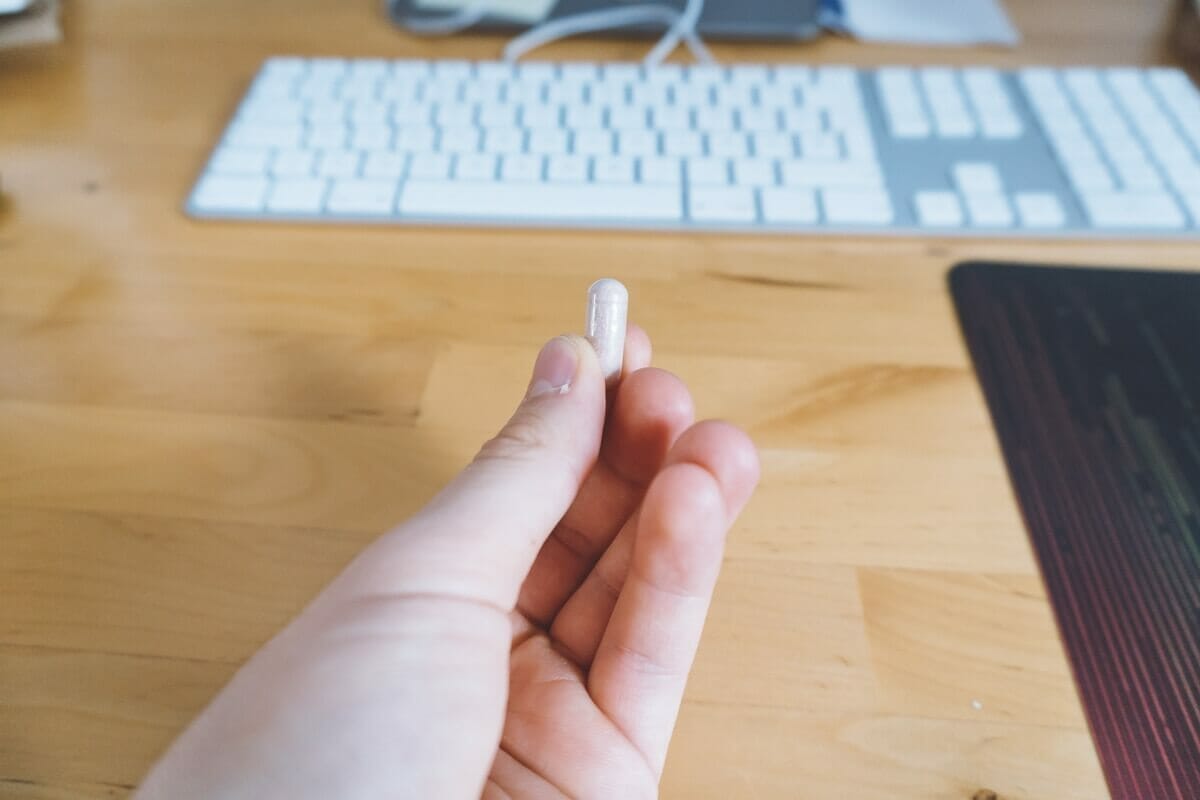
Last but not least, let’s talk about energy pills. Even though the term sounds scammy at best, energy pills are a real thing.
They are basically capsules that contain a mix of multiple compounds that can boost your energy levels.
If you want to learn more, please check our full article about energy pills here >>
Verdict
If caffeine does a number on your digestive system, then feel free to try out these interesting caffeine alternatives recommended above. Many of these alternatives also provide benefits coffee can’t, such as antioxidant-rich herbs and spices, probiotic agents, and acetic acid.
To sum up, you don’t have to rely solely on caffeine to kick-start your day. Instead, stock up on these energy boosters to get a caffeine and jitter-free start to your day.
